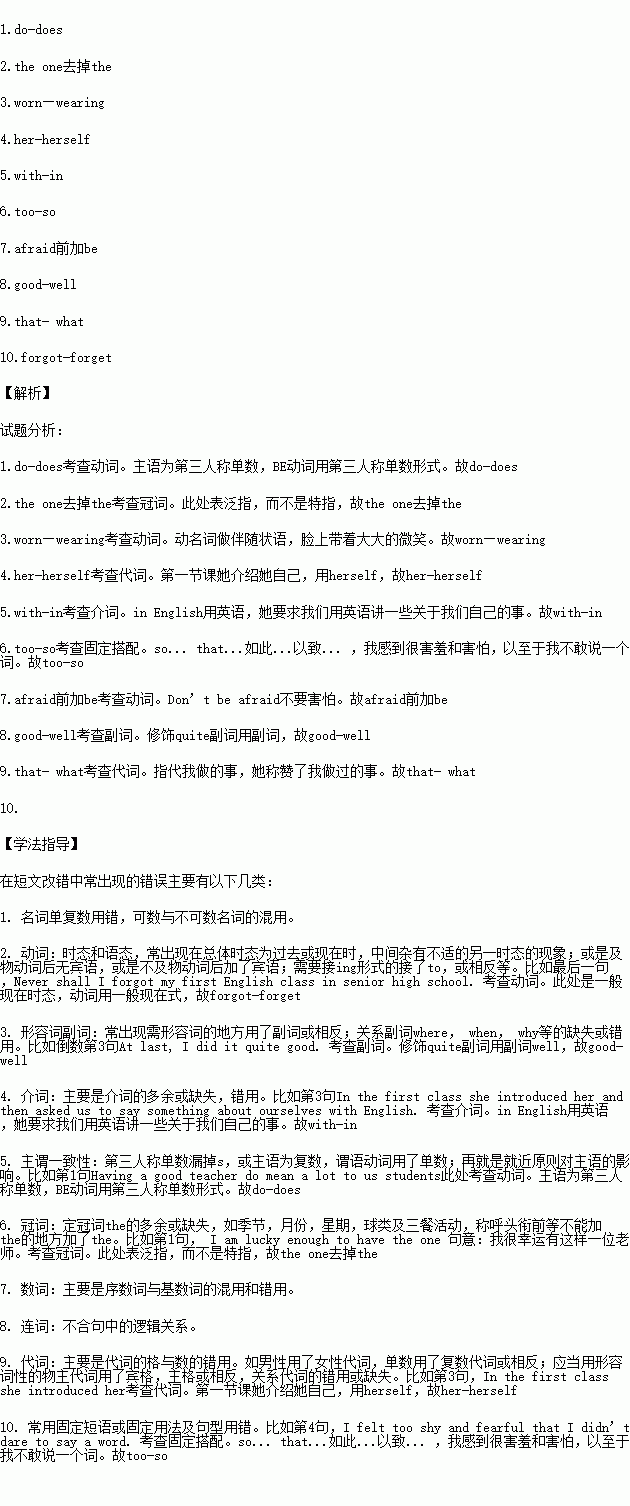题目内容
短文改错
增加:在缺词处加一个漏词符号(?), 并在其下面写出该加的词。
删除:把多余的词用斜线(\)划掉。
修改:在错的词下划一横线, 并在该词下面写出修改后的词。
注意:1.每处错误及修改均仅限一词;2.只允许修改10处,多者(从第11处起)不计分
Having a good teacher do mean a lot to us students and I am lucky enough to have the one ----Miss Brown, my English teacher.
Miss Brown is a charming lady always worn a big smile on her face. In the first class she introduced her and then asked us to say something about ourselves with English. When it was my turn, I felt too shy and fearful that I didn’t dare to say a word. She came up to me and said, “Don’t afraid. You can make it. Just have a try.” At last, I did it quite good. She praised me for that I had done.
Never shall I forgot my first English class in senior high school.
练习册系列答案
 同步练习强化拓展系列答案
同步练习强化拓展系列答案
相关题目


 uck her town, taking the lives of her 2-year-old son, C.J. and her mother-in-law. “It was the most terrible experience of my life,” she says. “That grief will never go away, and it broke my heart to think about what these families were going throug
uck her town, taking the lives of her 2-year-old son, C.J. and her mother-in-law. “It was the most terrible experience of my life,” she says. “That grief will never go away, and it broke my heart to think about what these families were going throug h in Otwell.”
h in Otwell.”